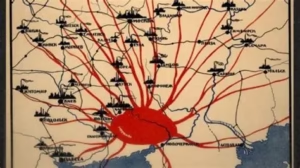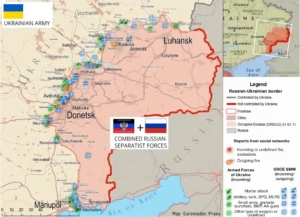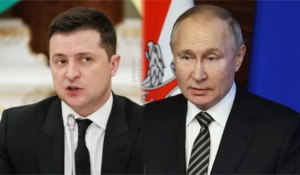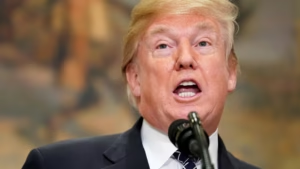The Battle for Donbas: Why Peace Talks Hold the Key to Europe’s Future1
The Battle for Donbas: Economic Significance and Prospects for Peace

The Economic Heart of Eastern Ukraine
Donbas, encompassing the Donetsk and Luhansk regions, has long been recognized as the industrial powerhouse of Ukraine. Its nickname, the “Ruhr of Ukraine,” reflects its significance as a coal and mineral hub that historically contributed 16% of Ukraine’s GDP despite accounting for only 10% of its population. The region contains an estimated $12.4 trillion worth of mineral resources, including massive coal reserves, iron ore, mercury, titanium, and rare earth minerals essential for modern technology.

Strategic Resources Driving Conflict
The region’s coal reserves are particularly significant, with proven deposits of over 60 billion tons, making it one of Europe’s largest coal basins. Beyond energy resources, Donbas contains critical

mineral deposits needed for defense industries, electronics manufacturing, and green technology. This concentration of strategic resources has made the region a coveted prize throughout history and explains why it has become the focal point of the current conflict.
The Path to Negotiations: A Trilateral Summit?
Recent reports indicate that former US President Donald Trump, now back in office, is preparing to host a trilateral summit with Russian President Vladimir Putin and Ukrainian President Volodymyr Zelenskyy before August 22. This meeting would represent the highest-level diplomatic engagement since the conflict began and signals a potential breakthrough in negotiations.

Russia’s Core Demands
According to multiple sources, Moscow’s position remains consistent with its pre-invasion demands:
- Formal recognition of Donetsk and Luhansk as independent entities or their annexation to Russia
- Demilitarization of Ukraine with security guarantees that exclude NATO membership
- Protection of Russian language and cultural rights throughout Ukraine
- Lifting of all Western sanctions against Russia
- International recognition of Crimea as Russian territory
Ukrainian officials have consistently rejected these demands as unacceptable violations of sovereignty. However, the changing battlefield dynamics and shifting political landscape in Western capitals have created new pressure points for negotiation.
The Human and Economic Toll
The conflict has transformed Donbas from an economic engine to a humanitarian catastrophe. Since 2014, the region has suffered:
The environmental damage is equally alarming. Abandoned mines have flooded, contaminating water supplies with heavy metals. Industrial facilities damaged by shelling have released toxic chemicals into the air and soil. The World Health Organization estimates that 40% of the region’s healthcare facilities have been destroyed or severely damaged, creating a public health crisis.
Geopolitical Implications
The outcome of negotiations over Donbas will have far-reaching consequences for European security architecture and global power dynamics. A Russian victory in securing Donbas would validate the use of military force to redraw borders and could embolden other revisionist powers. Conversely, a Ukrainian success in retaining the region would reinforce the post-WWII international order based on territorial integrity.
Energy Security Dimensions
Beyond mineral wealth, control of Donbas impacts Europe’s energy security. Before the conflict, the region housed critical infrastructure for transporting Russian natural gas to European markets. The war has already disrupted these supply lines, contributing to Europe’s energy crisis. A permanent shift in control could reconfigure energy transit routes for decades.
Potential Compromise Scenarios
As the trilateral summit approaches, several compromise scenarios have emerged in diplomatic circles:
- Special Status with Autonomy: Donbas remains Ukrainian territory but with extensive self-governance and economic ties to Russia
- Phased Withdrawal: Russian forces withdraw in exchange for gradual lifting of sanctions and security guarantees
- International Administration: UN-supervised transitional administration with shared resource management
- Neutrality Pact: Ukraine forswears NATO membership in exchange for security guarantees from multiple powers
- Economic Joint Venture: Shared management of mineral resources with international oversight
Each scenario presents significant challenges. Ukrainian officials fear that autonomy arrangements could become a Trojan horse for future Russian intervention, while Moscow distrusts international oversight mechanisms that might favor Western interests.
The Trump Factor in Negotiations
President Trump’s return to the White House has dramatically changed the diplomatic landscape. His administration has signaled a more transactional approach to the conflict, prioritizing American interests over ideological positions. Key elements of the Trump approach include:

Energy Independence Leverage: The US position as the world’s top oil and gas producer gives it unprecedented leverage in energy negotiations. Trump has suggested that American energy exports could replace Russian supplies to Europe, weakening Moscow’s economic position.
Economic Pressure: The Trump administration has indicated willingness to lift certain sanctions in exchange for concrete Russian concessions, a position that diverges from the EU’s more hardline stance.
Direct Engagement: Trump’s personal relationships with both Putin and Zelenskyy (despite previous controversies) create channels for backchannel diplomacy unavailable to previous administrations.
Conclusion: The Search for Durable Peace
As the leaders prepare to meet, the world watches with cautious hope. The Donbas conflict represents more than a regional dispute – it is a test of whether 21st-century conflicts over resources can be resolved through diplomacy rather than force. The mineral wealth that made Donbas prosperous now threatens to make it permanently contested territory.
A sustainable solution must balance legitimate security concerns with the right to self-determination. It must acknowledge economic realities without sacrificing sovereignty. And it must create mechanisms to share the region’s wealth in a way that benefits all its people rather than fueling further conflict. The coming weeks will reveal whether statesmanship can achieve what years of warfare could not.
Sources and Further Reading
- Russia-Ukraine War: Peace Deal Prospects – Business Standard
- Trilateral Summit Plans – MSN
- Donbas Resource Wealth – MSN
- Ukraine Conflict Reports – International Crisis Group
- Eastern Europe Analysis – Atlantic Council
- Geopolitical Implications – RAND Corporation
- Russia-Ukraine Relations – Wilson Center
- European Energy Security – Energy Global
Share this content:





